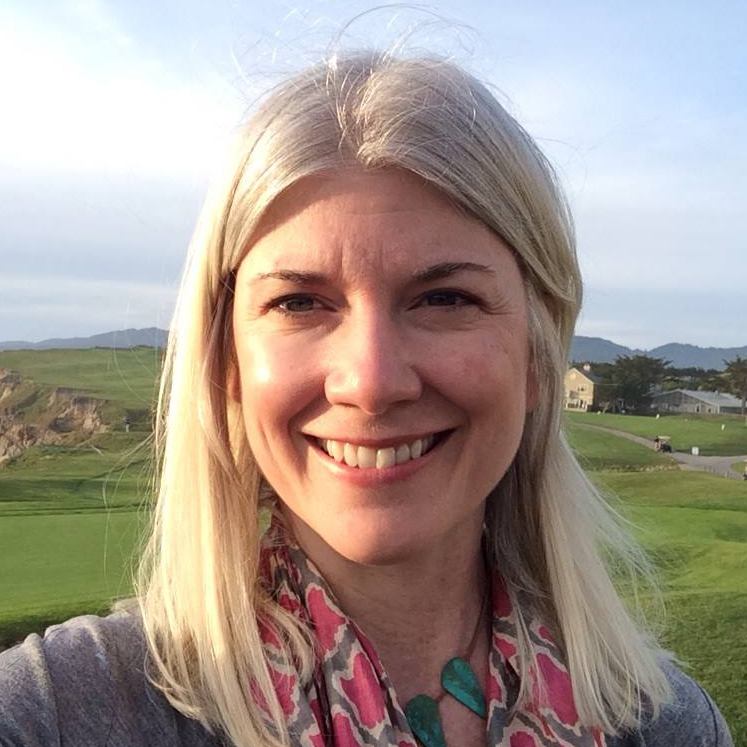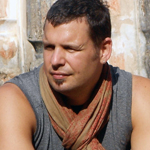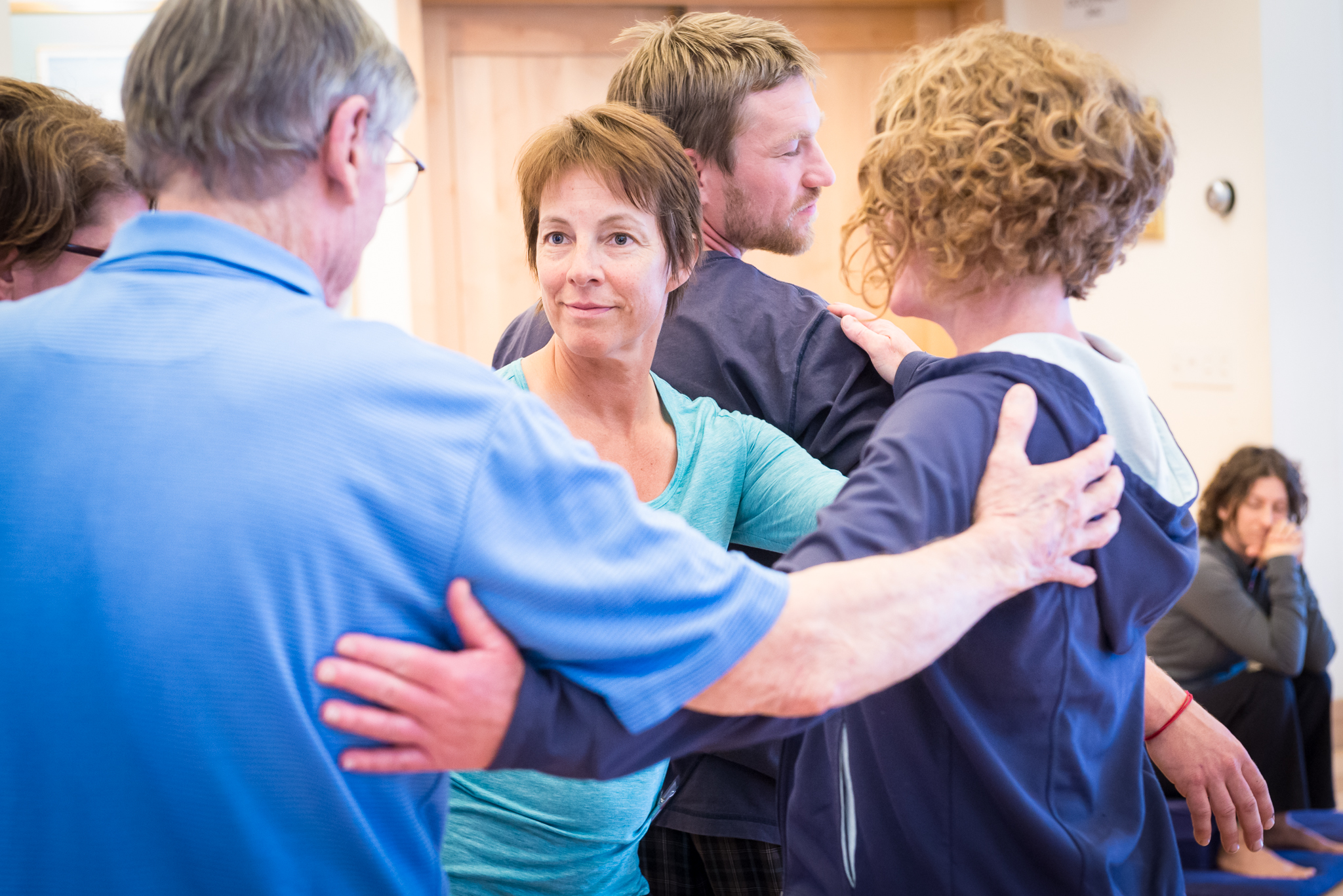Understanding the Interplay Between Karma and Trauma
In a previous post, we shared the first part of an illuminating dialogue between Julie Flynn Badal and Dr. Miles Neale — a Buddhist psychotherapist. That article offered a fresh presentation of the Buddhist notion of karma, and discussed how Buddhist psychotherapy offers a way of working with challenging habitual patterns.
Here in part two, we’d like to deepen the exploration by addressing the topic of trauma — how it is related to karma, and what some effective ways of healing may be.
Julie Flynn Badal: In describing the hallmarks of Buddhist psychotherapy, you spoke of including the role of the body in the process of emotional healing. I’ve noticed that your meditation courses and retreats frequently include yoga. How does Buddhism view the relationship between mind and body?
Miles Neale: Current neuroscience has clearly shown that unprocessed trauma is often stored somatically as fragmented, implicit memory. You can spend years in psychotherapy from the neck up, talking about past traumas and not really growing. In order to really heal, one has to drop down into the body and make direct contact with those stored nodes of pain. This process allows for the release of suppressed energy, emotion and imagery.
By connecting with the body, an individual can integrate these implicit and fragmented memories into a more explicit narrative. I call that process becoming fully human, reuniting with the lost, wounded parts of the self. Yoga and meditation offer psychotherapy very profound and salient tools for that endeavor. Recently, there has been an explosion of interest in integrating yoga, mindfulness, and somatic-based practices into psychotherapy. Some might argue that meditative tools were not intended for this. But my research suggests there are many similarities between karma and trauma that beg a closer look.
You can spend years in psychotherapy from the neck up, talking about past traumas and not really growing. In order to really heal, one has to drop down into the body and make direct contact with those stored nodes of pain.
JFB: How would you, as a therapist, define trauma?
MN: Trauma is a syndrome of involuntary disconnection that follows an unexpected event that is perceived to be life threatening. The event overwhelms our coping mechanism and leaves us utterly helpless.
JFB: From what you describe, it sounds like trauma causes one to lose touch, in one way or another, with the present moment. Can you offer some examples of what kind of behavioral or cognitive symptoms manifest as a result of this? How can we recognize the symptoms of trauma in ourselves and others?
MN: Traumatic reactions can occur on a spectrum from mild to severe. It’s very common to repeatedly relive the event through intrusive memories, nightmares, or flashbacks. Avoidance of feelings or anything even remotely tied to the event is also common. So we often find traumatized individuals using drugs and alcohol to numb their feelings, isolating themselves from others, and restricting their activities.
In extreme cases, a person may dissociate. Dissociation is an involuntary disconnection from feelings and relationships. Dissociated individuals may feel as if they are floating outside the physical body and have no sense of self.
Other symptoms include excessive blame, guilt, diminished interest in once-loved activities, and outbursts of irritability or rage. Finally, trauma can impact sleep cycles, make people edgy, easily startled, hyper-vigilant, or even paranoid as they try to protect themselves from future reoccurrence.
JFB: In your talks at the Tibet House, you’ve explained how one needn’t experience the violence of a war, an assault, or a car accident to be traumatized. Today, it seems that anything in the environment that threatens our physical or psychological integrity can be classified as traumatic. You’ve often described how even the most ordinary childhood can be rife with trauma. Can you explain why that is?
MN: The perils of birth, infancy, and childhood often leave a reservoir of latent traumatic impressions. Children are vulnerable to trauma because we are such sensitive mammals with a prolonged and precarious period of dependency. Throughout life, we experience major losses and unpredictable challenges that completely debase us and expose the fragility of the human experience. Then, of course, we all must face old age, illness, and death. There is a clear difference, however, between the experience of trauma and a clinical diagnosis of post-traumatic stress disorder.
In the end, it’s important to remember that we each also possess the natural capacity for change because our nervous systems are flexible and trainable. We can even develop greater resilience and compassion on the basis of trauma. The key is to find the courage and guidance to face past trauma and process it, rather than insist that we should somehow get over it.
JFB: There has been a lot of buzz lately about the idea of spiritual bypassing. The way I understand it, spiritual bypassing is a tendency to use spiritual practices to escape or avoid one’s unresolved emotional issues. In many ways, Buddhist psychotherapy seems to serve as an antidote for spiritual bypassing. Would you agree?
MN: One of the most primitive, subtle, and universal motivations in us all is pain-avoidance. Human beings can use almost anything, including meditation, yoga and psychotherapy, to sidestep the unwanted aspects of our experience and lives. Knowing this, helps me guide yogis and meditators through the dark forest of their past traumas. I’m able to respect and recruit the language and tools of my clients’ spiritual tradition, while watching for the blindspot in their awareness.
My work draws on psychotherapy to help people integrate the fragmented and unwanted aspects of their personal history. But I also make us of contemplative practices to expand a sense of humanity beyond narrow limitations to include flow states, greater resilience, and altruism.
Human beings can use almost anything, including meditation, yoga and psychotherapy, to sidestep the unwanted aspects of our experience and lives. Knowing this, helps me guide yogis and meditators through the dark forest of their past traumas.
JFB: Can you elaborate on your understanding of the interplay between karma and trauma?
MN: In my research, I’ve found several commonalities between trauma and karma. Both trauma and karma are rooted in our subjective appraisal of an experience, not in the objective severity or quality of it. For example, trauma research suggests that there is a broad and varied range of human responses to life-threatening situations. Some resilient individuals are able to grow, learn and thrive, while others are significantly and chronically compromised. The key to helping those who seek guidance during difficult times is to understand precisely what makes some people more resilient and flexible. Current neuroscience research has shown that these positive traits are trainable like skills using various meditation practices.
Another commonality between trauma and karma is that neither one is ever lost. The subjective impact of a past event doesn’t just disappear over time on its own accord. Neuroscience suggests that traumatic experiences are often stored as shards of disassociated affect latent in the body, awaiting reactivation by some unknown trigger in the future.
Contemplative science of karma suggests something very similar. Real-time events are filtered through our distorted perceptual lenses. These events activate stored latent imprints called seeds (bija) that can trigger painful sensations and afflictive emotions, which are wired to routine maladaptive behavioral reactions.
Maladaptive responses leave a residue of emotional reactivity that will color perception in a future moment and bind us to repeated, automatic response patterns. These patterns condition us to a compulsive life of distress, which the Buddha called samsara.
One could say that both trauma and karma can keep us feeling trapped in an endless cycle. We’re not completely free to perceive things clearly in the moment beyond what we have already experienced in the past. And we’re not completely free to respond freshly in the moment because we are compelled by what we have always done.
JFB: This is beginning to feel a little defeating. What can we do to break these repeating cycles of trauma or samsara?
MN: Meditation and psychotherapy offer alternatives to intervene in the cycles of stress and trauma. An opportunity for change is available to us all in what is often called “the gap.” This is the moment between emotional sensations and reactive behavior. Remember the sensations we feel are mostly the release of stored potential energy from the past, triggered by an associated event in the present. There is really nothing you can do about feeling angry when your boss appears to disrespect you. The feeling is a karmic effect, the ripening of a seed from the past. But between the feeling of anger and the urge to react there is a fraction of a second to consciously intervene in the cycle.
In that moment, mindful attunement and compassionate action can have a life-changing impact. The key is to recognize and stay present with an unpleasant karmic effect while resisting the hook of its habituated reaction pattern. Then we can consciously choose to re-link that uncomfortable feeling of shame, fear, or pain with a more adaptive and sustainable response. In other words, we can deposit a positive cause that later ripens into a favorable effect. This begins to wire us for greater response flexibility.
We can use meditation and the attuned presence of another caring person to learn to slow down and recondition our reactivity. Ultimately we are harnessing the power of neuro-plasticity to blaze new neural pathways that change mind, brain and nervous system.
Meditation and psychotherapy offer alternatives to intervene in the cycles of stress and trauma. An opportunity for change is available to us all in what is often called “the gap.” This is the moment between emotional sensations and reactive behavior.
JFB: These are such inspiring insights. I’m sure many readers would like to learn more. What is on the horizon for you and the Nalanda Institute in terms of course offerings?
MN: This September we are excited to offer a second iteration of the Nalanda Certificate Program in Contemplative Psychotherapy. It’s an historic, unprecedented, two-year professional training program in the arts and sciences of Indo-Tibetan Buddhism.
JFB: Sounds fascinating. Can you tell me a bit more about the program?
MN: We work with a cohort of highly motivated professionals from various disciplines including health-care, education, wellness, business, and yoga. The program is a very structured and comprehensive course in the traditional Buddhist mind science and meditative arts. This content is seamlessly integrated with the latest psychotherapy and neuroscience.
Our faculty includes pioneers, luminaries and experts in the field of Buddhist studies and contemplative research, including Robert Thurman, Rick Hansen, Dan Siegel, Mark Epstein, and Sharon Salzberg.
It’s an incredibly rich and rewarding opportunity. Most inspiring is the potential ripple effect we are creating together. By training-the-trainer, we can really scale up our mission to bring mindfulness and compassion into our own hearts, families, and businesses while connecting globally.
About the Authors






Insightful and thought-provoking! This article effectively explores the intricate relationship between karma and trauma, providing a deeper understanding of their interconnectedness. Highly recommended read!”